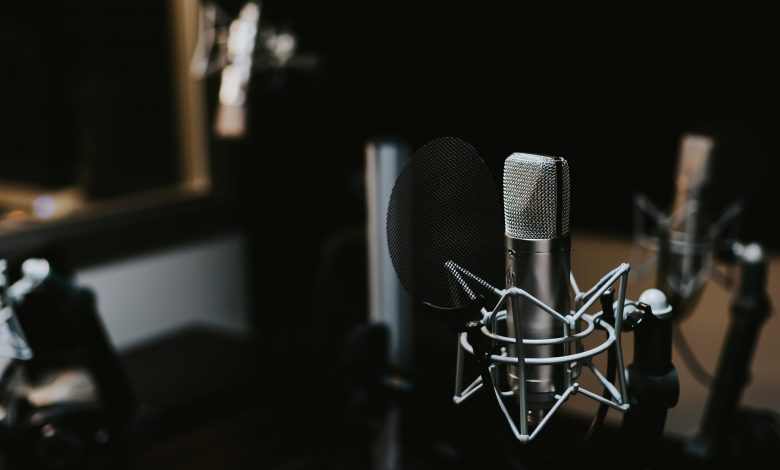8 Podcast Pre-Production Tips And Tricks To Try In 2024

Podcasts have immensely popular over the last few years. They’ve become one of the most popular ways for people to consume media. The concept of a podcast is fairly simple – you have a host and a guest, or multiple ones, and they’re having a conversation.
This might sound like a regular radio interview, but it’s not. The form is different. In interviews, the focus is solely on the guest and the interviewer is there only to ask questions. In podcasts, both host and guest are equally invested in the conversation and that’s what makes it interesting.
On that note, there’s a lot more to the podcasts than it initially meets the eye. It’s not enough just to have an interesting guest come on – you have to do more. Seeing how the host is equally as important, maybe even more in some cases, you have to do a lot of prep work if you want to make it in this sphere. Pre-production is the key element of a successful podcast, as post-production isn’t a big part of it. Naturally, you do some tweaks here and there in post-production, but most of the work is done beforehand. That means you have to be prepared. Here’s how.
1. Find A Host
Finding a host that is a good listener and conversationalist is paramount when it comes to podcasts. They have to be someone who’s interesting enough to listen to, someone who can engage in any kind of conversation, lead it or take a back seat if necessary, and someone who’s an amazing storyteller. Whether that’s you or someone else – it doesn’t matter. Maybe there’s more than one host – it’s all fair game as long as it’s consistent and interesting.
2. Make An Intro & An Outro

Consistency is key when it comes to podcasts. One of the best ways to achieve consistency? Have an intro and an outro. Make something that’s unique to your podcast and stick to it. Once you make it, you can just paste it onto every single episode from that point on and make post-production much easier.
3. Define The Segments
One of the best ways to achieve consistency and structure in the podcast is by having (or not having) segments. The tricky part is – you shouldn’t have both. Either the whole show is just one long segment or you’re splitting it into pieces – no in-betweens.
We do have to say that segments aren’t necessary, but they’re always a welcome addition, especially if you’re doing the show on your own. If you have guests, your show could just be one long, uninterrupted conversation.
4. Define The Length Of An Episode

Another thing to keep in mind when it comes to structuring is how long the podcast should be. if you’re running a daily show, keep it brief – under 15 to 20 minutes. If you’re doing weekly or monthly shows – you can make them longer. Just make sure you stick to the same format and not wiggle too much.
Now that you’ve structured your show – you’re pretty much in the clear as for as that is concerned. However, that’s not all there is to pre-production. Here are some other things to keep in mind as well.
5. Set Up The Equipment
In order to run a successful podcast operation – you need audio equipment. In some instances, podcasts are also filmed, but the audio is much more important. Once you decide on what gear you’re going to get – it’s important to set it all up properly as well. Making sure everything’s running smoothly will make your life so much easier. A bad setup will most definitely cripple your chances of running a successful podcast.
Additionally, always perform a gear check before every episode. It’s a lot easier to postpone recording than it is to deal with problems in the middle of it.
6. Prep Your Guests (If There Are Any)

A podcast could be without the host, although those don’t seem to be as popular as the ones with actual conversations between two or more people. If you don’t plan on having guests over, then you can skip this tip. On the other hand, if you do – pay attention!
Prepping your guests can make or break the show. Now, we’re not saying that you need to sit down with them and go over every single conversation topic or tell them what to say – we’re not talking about The Tonight Show. Podcasts aren’t scripted, but in most cases, it’s good to have a plan and if you do – it’s important that you’re all on the same page.
So, before you start, make sure you outline all the important stuff to your guest, maybe go over some of the topics you plan on discussing, especially if they might be uncomfortable. Also, this can help for a more engaging conversation now that you know in which direction to steer the conversation.
7. Do Your Research
Regardless of whether you’re having guests on or not – you have to prepare for the episode by researching the topics you’re going to talk about. This is especially true if you’re the lone wolf in the podcast, as the whole thing is resting on your shoulders.
8. Practice

You might feel like winging the whole show might be a good idea, but that’s not really the case. Even if you’re doing a 15-minute show – 15 minutes is a lot of time to say something dumb and when you do that – you have to fix it in the post. On the other hand, if you plan each episode, topic by topic, segment by segment, you can avoid errors and mistakes and keep everything free-flowing. Once you get really good at it – you can just record, save and post your podcasts, almost entirely eliminating post-production.
As you can see, there are a lot of things that go into pre-production for a podcast.
When it comes to podcasts, it’s important to have a clear structure and stick to it, so your listeners and viewers know what to expect when they press play on your content. The thing is, as much as it seems like a drag, dealing with stuff in pre-production makes your life easier because it’s always better to avoid mistakes than it is to fix them. Hopefully, we have managed to give you some good tips today.



